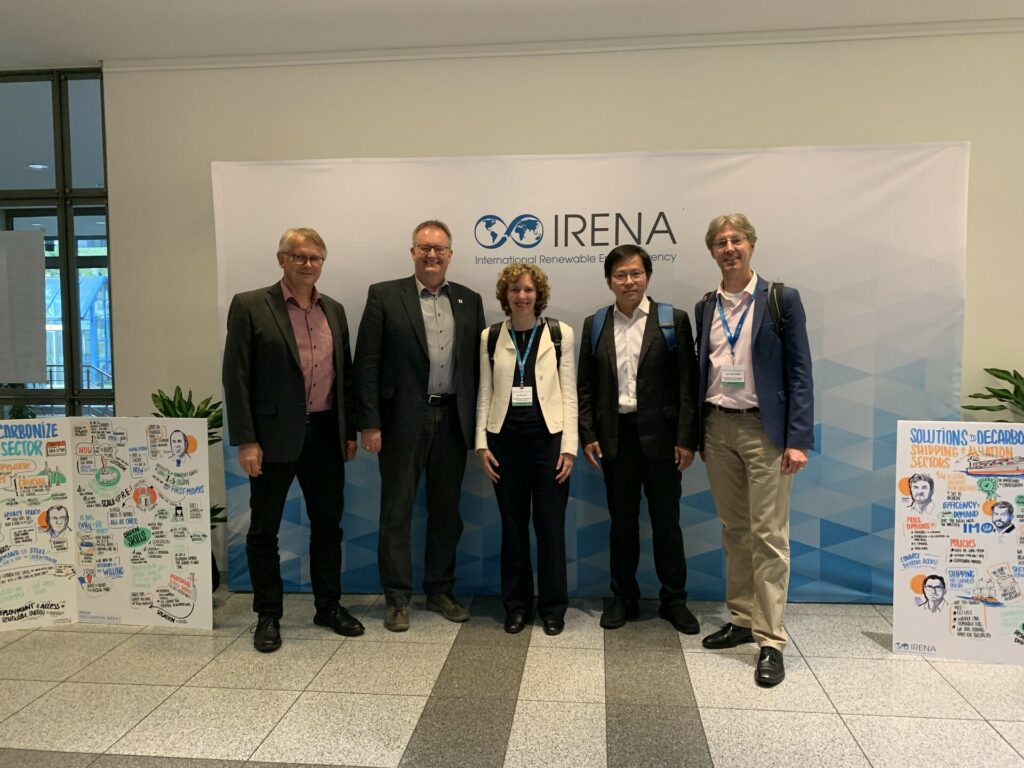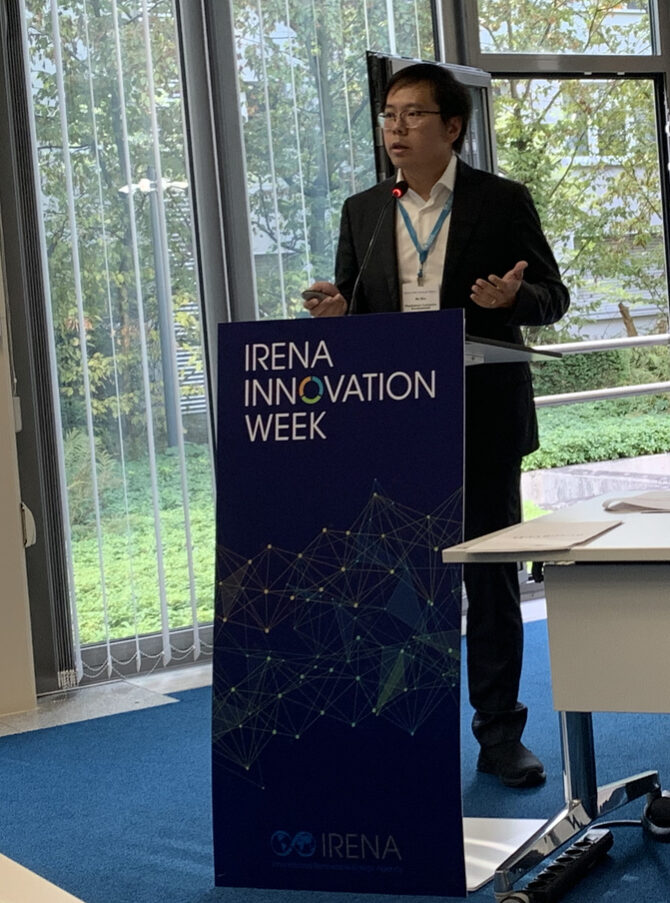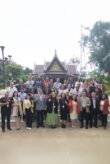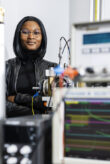Within the scope of the four-day International Renewable Energy Agency (IRENA) Innovation Week, a symposium on the need for a quality infrastructure (QI) for the green hydrogen industry took place in Bonn on 28 September 2023. Around 50 representatives of international institutions, lobbies, consulting firms as well as other actors from the energy supply sector and QI met upon invitation of IRENA. This symposium focused on presenting the QI Roadmap for Green Hydrogen, developed by IRENA in close collaboration with PTB, to a specialist audience for the first time. The aim was to establish a dialogue with interested parties in order to obtain their feedback and suggestions.
The roadmap is designed as guidance for decision makers in the sectors of politics, the energy-supply industry and QI who endeavour to develop a green hydrogen industry in a country, while adequately taking account of the requirements this places on the national QI. QI includes elements such as standardization, technical regulations, certification, inspection, accreditation and the metrology and testing systems. These are elements that are all essential for aspects such as efficiency, safety and interoperability, which help build up trust in this new technology and international trade with this important energy vector. The general roadmap presented there was examined and scrutinized in depth based on the example of Tunisia – a developing country with a huge potential and great ambitions as regards the production of green hydrogen.
The symposium was organized by IRENA in collaboration with PTB, ISO and IEC in the context of a study funded by the BMZ which was titled “QI for Green Hydrogen: Technical standards and quality control for the production and trade of renewable hydrogen”. PTB’s International Cooperation Group supports the establishment and development of QI in developing countries and countries in transition on behalf of the BMZ. It is currently planning projects concerning QI for green hydrogen in several countries.
Beware, explosive!

Dr Bo Shu and Dr Martin Thedens gave expert speeches on metrology and explosion protection, respectively, against the background of green hydrogen. These speeches provided a good overview of important QI services for this sector.
The green hydrogen industry plans are developing very dynamically. There is a strong interest in using this new technology on the part of both the private sector and public institutions. Governments throughout the world are currently elaborating hydrogen strategies that are often flanked by extensive public support programmes. Germany is no exception. The Federal Ministry for Economic Affairs and Climate Action (BMWK) is the entity in charge of this topic. To date, the importance of QI for a safe and internationally compatible development of the green hydrogen sector has hardly been considered at all. It needs to be paid more attention on an international level. Hydrogen is a highly explosive gas that can only be liquefied at high pressure and very low temperatures. If handled incorrectly, hydrogen poses great risks to health and life.
Green hydrogen and its derived products (derivatives) are at the same time energy vectors that are bound to become conventional commodities, i.e., globally traded raw materials. Procedures for determining the quality of hydrogen and certifying that it was produced using renewable energy sources must imperatively be conceived as internationally harmonized rules rather than national, isolated solutions as they are the prerequisite for proving that hydrogen really is green hydrogen. With its intrinsic international orientation, QI provides adequate instruments and contributes to ensuring the efficiency and the interaction of different components in global production and trading chains.
Moreover, the aspect of the availability of an essential resource, namely water, has not been paid sufficient attention in developing the production of green hydrogen. Roughly 15 to 25 litres of water are necessary to produce 1 kg of hydrogen. Water management and QI services in this area are therefore of paramount importance in order to protect this resource which has become particularly scarce and therefore valuable in numerous countries of the global South. In this field, QI offers services from accurate metering to standards to international good practices to accredited testing laboratories for analyzing the water that mostly comes from desalinization plants.
Thank you, Iris!
The symposium also symbolized responsibilities regarding the topic of green hydrogen at PTB’s International Cooperation Group (9.3) being handed over to Carl Felix Wolff by Iris Nadolny.
I would like to take the opportunity to thank Iris Nadolny for her excellent work and for facilitating the transfer of these tasks.
In the meantime, IRENA and PTB will pursue their joint study project, taking account of the feedback gained from the symposium, the case study in Tunisia and consulting other important actors.
Images © PTB








